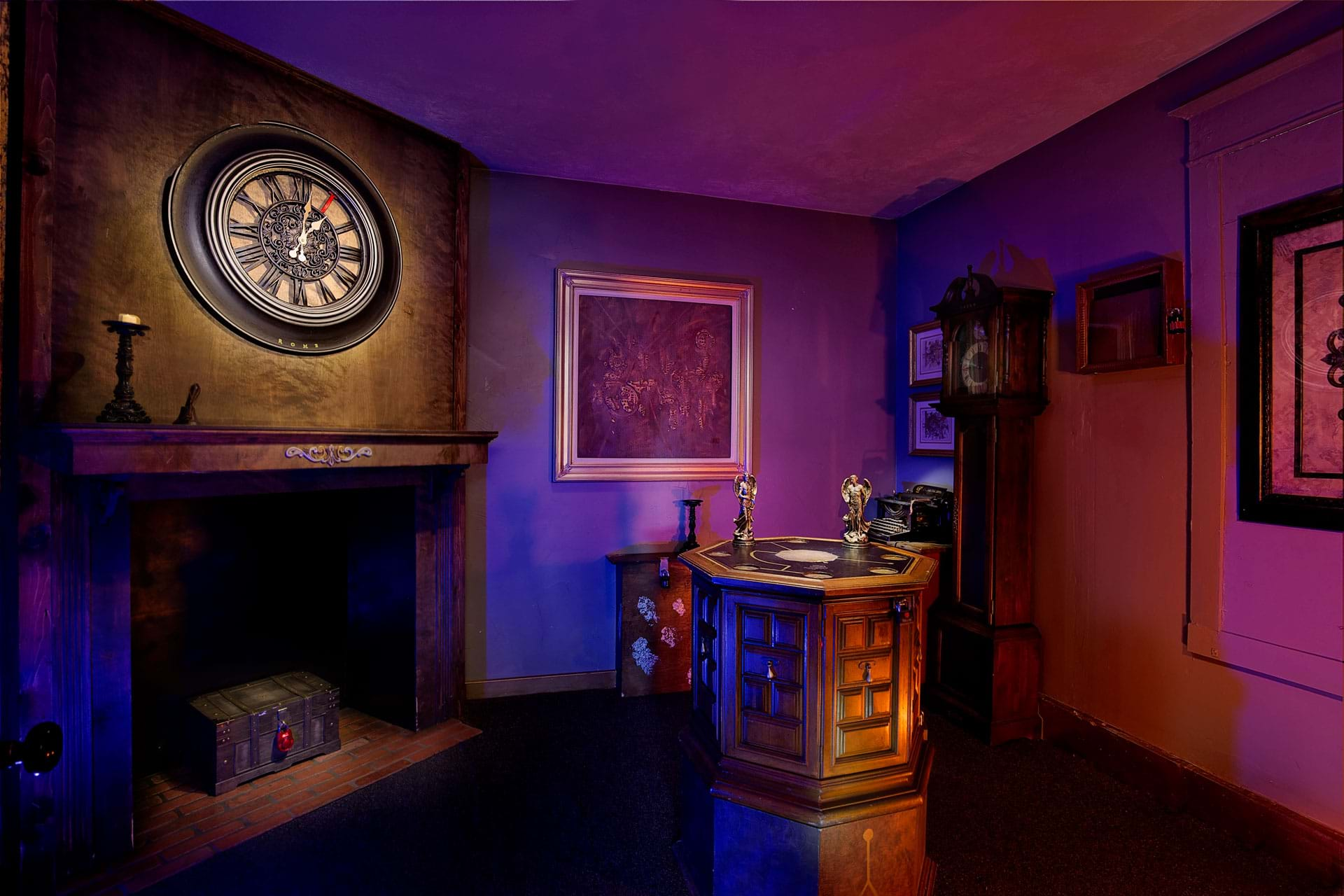Minneapolis Escape Room-- Interesting Problem Difficulties for All Ages
Minneapolis Escape Room-- Interesting Problem Difficulties for All Ages
Blog Article
Team Approaches: How to Collaborate Effectively in a Retreat Area
Groups have to actively listen to each member's insights, designate duties that align with specific staminas, and maintain routine check-ins to make sure emphasis and protect against redundancy. By fostering a setting that values communication and adaptability, teams can significantly enhance their effectiveness and success prices.
Establish Clear Communication

To help with clear interaction, it is necessary to assign a main factor of call for information dissemination. This role involves summarizing searchings for and suggested approaches to guarantee everyone stays on the very same web page. Additionally, embracing a methodical approach to discussions can stop disorderly exchanges. Quick, concentrated updates from each team participant can maintain the group notified without overwhelming them with details - best escape room.

Designate Duties Tactically
While clear interaction sets the structure for reliable team effort, appointing functions purposefully makes sure that each group participant's toughness are made use of effectively. In a retreat room circumstance, the time-sensitive and complex nature of challenges demands a well-organized strategy to job delegation. By determining and leveraging individual proficiencies, teams can enhance their problem-solving abilities and improve general efficiency.
First, evaluate the distinct skills and characteristics of each individual. For instance, someone with a keen eye for detail could master locating surprise objects, while a rational thinker can be much better fit to fixing challenges - best escape room. It's similarly important to have a leader that can oversee progression, manage the timeline, and make decisive calls when needed. This duty commonly requires solid business and social skills.
Second, make sure that functions are versatile and adaptable. As brand-new obstacles arise, the group needs to have the ability to pivot, reallocating tasks as called for. This versatility helps preserve momentum and prevents traffic jams that can happen as a result of inflexible duty jobs.
Inevitably, a critical approach to duty project not only takes full advantage of the strengths of each employee yet also cultivates a cohesive setting, driving the group in the direction of a successful retreat.
Utilize Diverse Skills
Identifying and using the varied abilities within your group can significantly boost your efficiency in an escape area. Each staff member brings special staminas to the table, and properly leveraging these capacities can expedite analytic and improve overall efficiency. A team participant with additional reading solid logical abilities might succeed at figuring out intricate codes or patterns, while an additional with keen empirical capabilities might promptly identify hidden clues that others might neglect.
Reliable communication is vital to making use of these varied skills. Motivate employee to voice their understandings and ideas without delay, ensuring that all potential services are taken into consideration. This comprehensive method cultivates a vibrant atmosphere where creativity and important reasoning can flourish. In addition, appointing jobs that straighten with each participant's staminas can protect against bottlenecks and make sure that development is continuous.
Additionally, diversity in skills typically equates to diversity in assuming designs, which is invaluable in a retreat room setting. While some obstacles may need rational reasoning and precision, others might gain from imaginative and side reasoning. By acknowledging and leveraging this variety, teams can resolve a more comprehensive variety of difficulties much more properly, thus boosting their opportunities of a successful escape.
Manage Time Effectively

First, allot initial minutes for a fast survey of the space. Determine noticeable challenges and divide jobs based upon employee' strengths, guaranteeing that nobody is still. Establish internal time checkpoints to evaluate progress periodically; for example, purpose to have half the problems resolved by the mid-point of the game. This practice can help maintain get redirected here the team concentrated and protect have a peek at these guys against time from sliding away undetected.
In addition, avoid passage vision. If a challenge is taking too long, turn team participants or move on to another difficulty, returning later with fresh point of views. Interaction is critical-- keep every person updated on solved problems and staying tasks to stay clear of redundant efforts.
Finally, utilize any kind of hints or clues sparingly yet purposefully - best escape room. Recognizing when to request assistance can save important time. By sticking to these time management concepts, teams can substantially enhance their opportunities of an effective and satisfying getaway space experience
Debrief and Show
Reflection is a necessary facet of team advancement and renovation in the context of retreat spaces. Once the obstacle is completed, whether effectively or otherwise, it is critical for the team to take part in a structured debriefing session. This procedure allows staff member to examine their performance, identify staminas, and identify areas for renovation.
Begin the debrief by reviewing what worked out. Highlight specific circumstances of reliable communication, analytic, and cooperation. Recognizing these positive behaviors reinforces them and urges their repeating in future obstacles.
Go over moments of complication, miscommunication, or ineffective techniques. Urge an open and positive discussion where group participants can share their viewpoints without fear of objection.
Final Thought
In final thought, successful collaboration in a getaway area is predicated upon clear interaction, strategic role tasks, the efficient application of varied abilities, and efficient time monitoring. By producing a cohesive and adaptive group setting, the possibility of successfully resolving challenges and attaining the purpose of getting away the area is dramatically improved.
Report this page